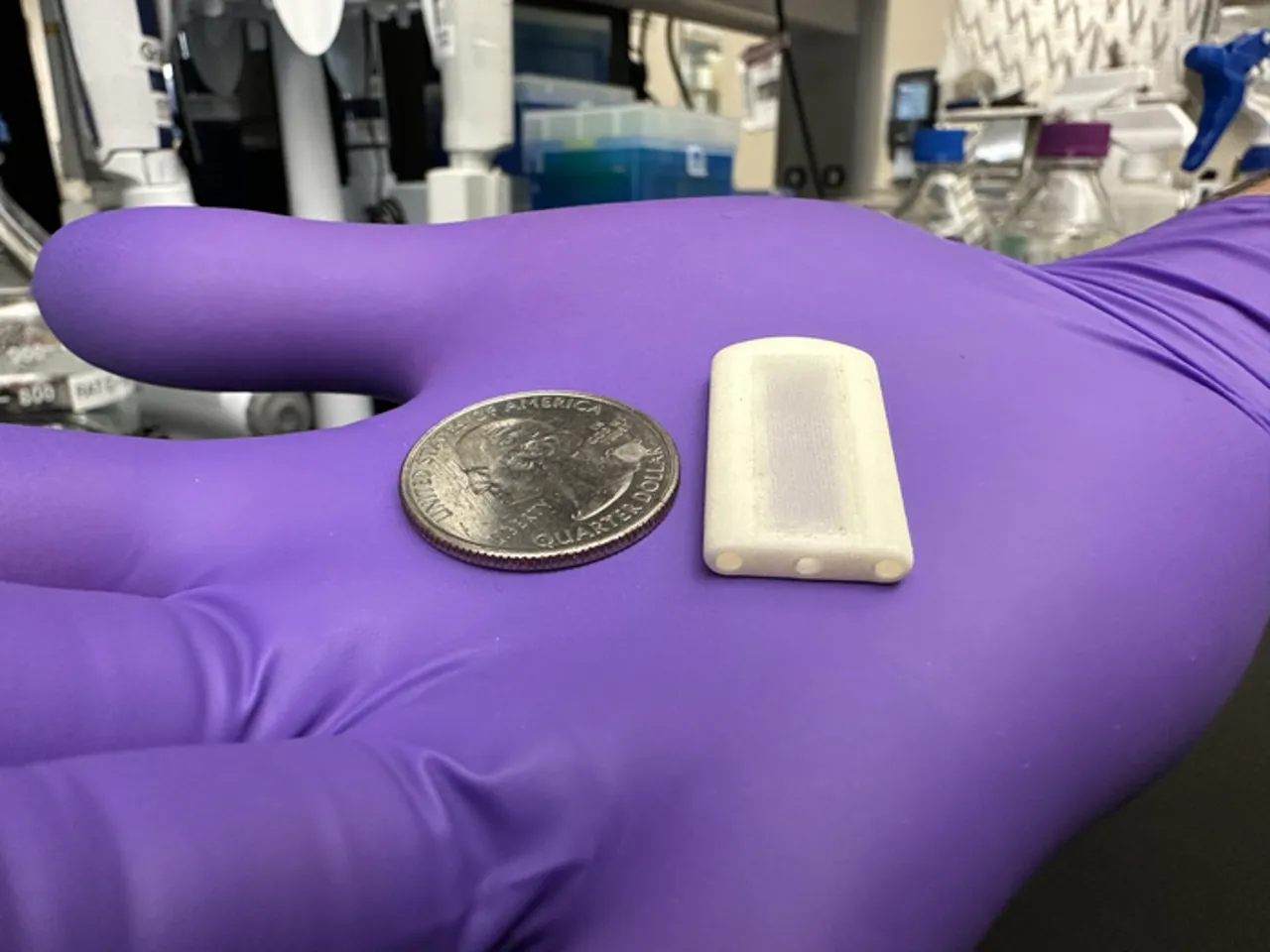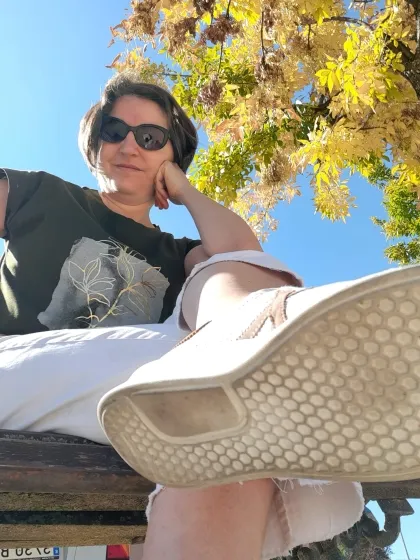fer
01/10/2023 11:20 a.m.
A device for the size of a small currency could drastically alter the treatment of type 1 diabetes, a chronic disease that affects millions of people and that still has no cure.
The Alessandro Grattoni and Jesus Paez-Mayorga team of the Research Institute of the Methodist Hospital in Houston, Texas, United States, has managed to incorporate islet and immunotherapy cells directly into a 3D printed device, comparable in some aspects to an artificial pancreas, and called Niche (implantable neovascularized cell homing and encapsulation).
The treatment with this device restored the healthy levels of glucose and eliminated the symptoms of type 1 diabetes in animal models for more than 150 days, while avoiding the serious adverse effects of antirreric therapy by administering immunosuppressive drugs only where the cells wereof the transplanted islets.
The Niche, created in the Nanomedicine department of the aforementioned institute, is a flat device that is placed under the skin and consists of a deposit for the islet cells and a drug tank for localized immunosuppression therapy.This is the first platform that combines direct vascularization and local immunosuppression in a single implantable device for alogenic transplantation of pancreatic islets and long -term treatment of type 1 diabetes. Direct vascularization is essential to supply nutrients and oxygenin order to maintain the viability of transplanted islets.
The Niche incorporates ports for drug recharge as necessary.During the tests, the researchers filled the drug deposits every four weeks.
The Grattoni team is already working on the adaptation of Niche technology for clinical use, including improvements such as drug recharge would only be necessary once every six months, a time long enough to make the use of technologyNiche is very practical for patients.
In addition, making the appropriate changes in the formulas or in the concentration of the drugs, the filling intervals could be extended until one a year was enough, coinciding for example with routine medical visits to supervise the patient's condition.
Grattoni and his colleagues expose the technical details of their device and the results of the tests with him in the academic magazine Nature Communications, under the title "Implantable Niche With local Immunosuppression for Islet Allotransplantation Achieves Type 1 Reversal in Rats Diabetes".(Source: Amazings NCYT)
Diabetes Tipo 1 desde 1.998 | FreeStyle Libre 3 | Ypsomed mylife YpsoPump + CamAPS FX | Sin complicaciones. Miembro del equipo de moderación del foro.
Autor de Vivir con Diabetes: El poder de la comunidad online, parte de los ingresos se destinan a financiar el foro de diabetes y mantener la comunidad online activa.
Sígueme en Instagram
Changing it once a year or every 6 months?Without having to click 4 or 5 times a day?
I put it without thinking.
No signature configured, add it on your user's profile.
I don't know, I don't know how much insulin produce those islets?
The same requires a concrete diet to balance the intake with what the apparatus produces.
How is it stimulated to segregate it? In what amount?
Does hypoglycemia with exercise or fasting?
A lot of unknowns yet but look good if it progresses.
Lada enero 2015.
Uso Toujeo y Novorapid.
Yes, of course, a living cell implant,
It sounds very good.
I hope I arrive someday.
Hija de 35 años , diabética desde los 5. Glico: normalmente de 6 , pero 6,7 la última ( 6,2 marcaba el Free)
Fiasp: 4- 4- 3 Toujeo: 20
Well, hopefully something like this came to us, but I see it still quite green ... it would also be necessary to imply exactly the "localized immunosuppression therapy."But come on, everything that is studies and advances, welcome.
DM1 desde octubre de 2019 | Toujeo + Fiasp | FreeStyle | febrero 2023: HbA1c 5,9
Buffff would put it without thinking, moreover, I would volunteer for clinical trials 🤣🤣🤣
No signature configured, add it on your user's profile.
En 1922 descubrieron la insulina, en 1930 la insulina lenta. ¿Que c*** han hecho desde entonces?
Why don't you study how to eliminate the antibodies we have generated, pancreas destroyers?
Lada enero 2015.
Uso Toujeo y Novorapid.
Of course I would try it, what is not normal is that at this point in the century technology and biomedicine have not found a less heavy way to carry diabetes ... I hope I arrive today better than tomorrow.
No signature configured, add it on your user's profile.
The "good" of this treatment is that pharmaceuticals would be a very profitable business.They would charge for the implant, for cells and medicines.And semiannually.So if it worked it is possible that if it is marketed.He would not be lost in a drawer.
En 1922 descubrieron la insulina, en 1930 la insulina lenta. ¿Que c*** han hecho desde entonces?
ruthbia said:
Why don't you study how to eliminate the antibodies we have generated, pancreas destroyers?
This is the question.
Diabetes: To the endocrine
Multiple sclerosis: to the neurologist
Rheumatoid arthritis: to the rheumatologist
Atopic dermatitis, Areatas: to the dermatologist
Asthma: To the neumologist
Diverse allergies: to the allergologist
What do they all have in common?An immune system that does not work correctly.We are treated by the damages that the immune system causes us in each specialty according to the affected organ, but ... why is there no discipline that studies the immune system?
I feel that medicine is stagnant on this issue, they provide us with patches to live with the disease but not to solve the root problem, which are the fighter antibodies that attack our own cells.We have no hope of healing but palliative to live with the problem forever, without being able to reverse it.
LADA desde septiembre de 2021
Toujeo y Fiasp
Aprendiendo
Is that I believe that antibodies appear due to genetic causes, associated with viruses many times ..,
The real problem is in genes, and medicine has not yet arrived.If one day, altered genes would be rebuilt, we would already be in another dimension.
Hija de 35 años , diabética desde los 5. Glico: normalmente de 6 , pero 6,7 la última ( 6,2 marcaba el Free)
Fiasp: 4- 4- 3 Toujeo: 20
@ENSALADA That was my question to the otorrinolaringologist on Monday for chronic rhinitis + nasal polyps.I am fed up with the nasal corticosteroids for inflammation, I want the root cause to be cured.
It can operate and reduce the mucosa, but it reproduces, that is, there is no solution, and the immune failure origin.
And just goes and that makes me compared to dermatitis (which I have been born since I was born) to tell me that there is no cure, only palliative and what is there.
Lada enero 2015.
Uso Toujeo y Novorapid.
What I do not understand is how they do so that anti -right drugs do not leave the implant and instead can enter the blood.
En 1922 descubrieron la insulina, en 1930 la insulina lenta. ¿Que c*** han hecho desde entonces?
@Sherpa41, so we will have to renew it every x months ...
Hija de 35 años , diabética desde los 5. Glico: normalmente de 6 , pero 6,7 la última ( 6,2 marcaba el Free)
Fiasp: 4- 4- 3 Toujeo: 20
If a baqsimi diabetes medicine that is nasal glucabon, does not cover the SS because it is expensive, as if to cover a treatment, I think we will not be in this world to see it
No signature configured, add it on your user's profile.
I just need to know what is safe for my son
Hijo con 6 años con DM1. Novorrapid, Lantus, FreeStyle.
You want the remedy in weeks for the DM1, wait for Elon Musk ...
No signature configured, add it on your user's profile.
_ tacker _ said:
you want the remedy in weeks for the DM1, wait for Elon Musk ...
hahahaha ... That would be a bombing !!
Diabetes Tipo 1 desde 1.998 | FreeStyle Libre 3 | Ypsomed mylife YpsoPump + CamAPS FX | Sin complicaciones. Miembro del equipo de moderación del foro.
Autor de Vivir con Diabetes: El poder de la comunidad online, parte de los ingresos se destinan a financiar el foro de diabetes y mantener la comunidad online activa.
Sígueme en Instagram









